In the Right Mold
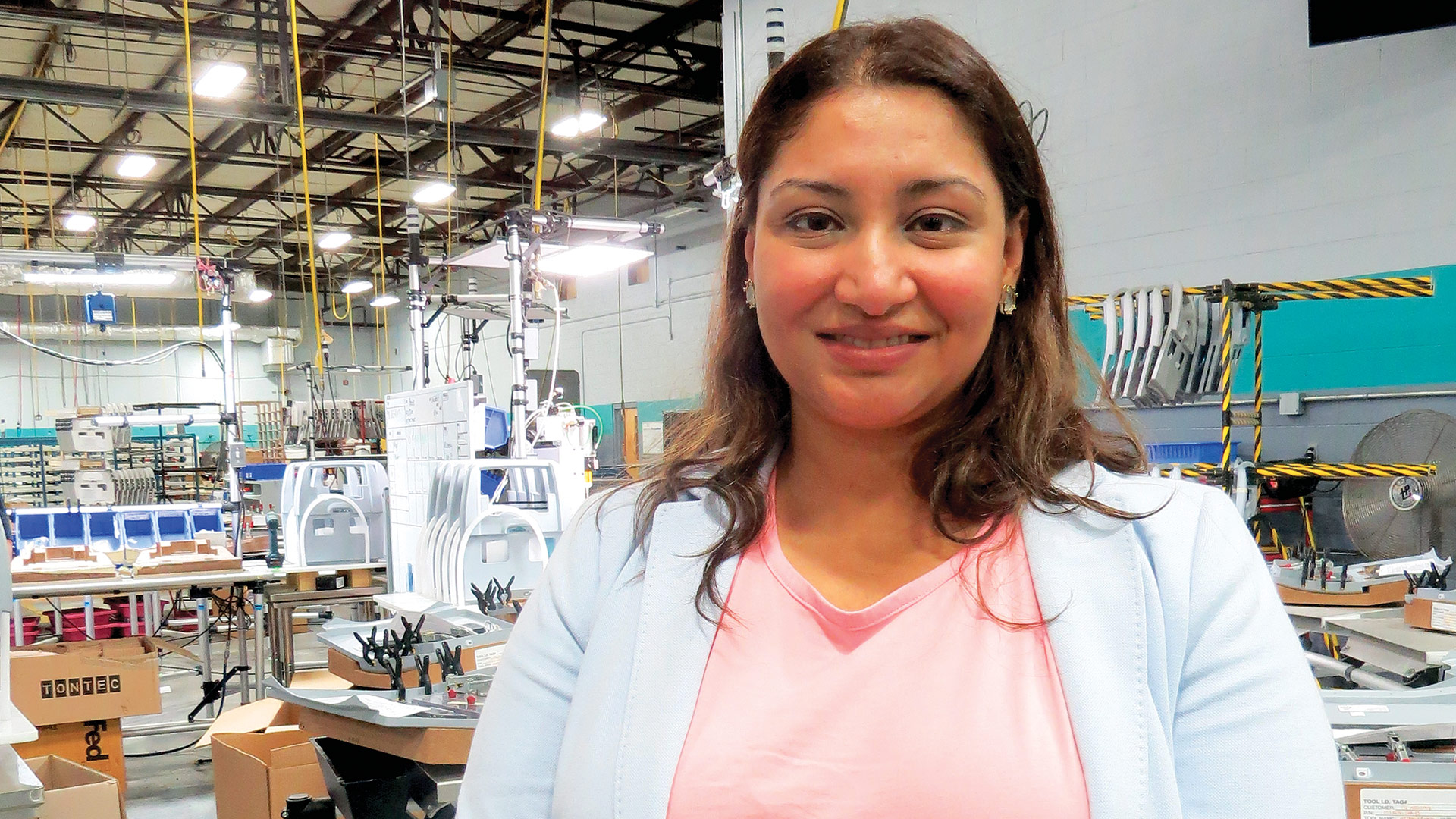
Pia Kumar, ‘chief strategy officer’ at Universal Plastics.
Back in mid-March, Pia Kumar recalls, at the height of the first wave of the COVID-19 pandemic, there was a good deal of absenteeism at the five plants within the Universal Plastics fold — maybe 40% by her estimate, a number that spoke volumes about the high levels of fear and anxiety within the workforce.
So Kumar, who co-owns the Universal family of businesses with her husband, Jay, and has the title ‘Chief Strategy Officer’ printed on her business card, did what she says comes naturally to her.
She got on the phone.
“I called every single employee that was not here and talked to them about their concerns,” she told BusinessWest, noting that this was maybe 200 people across the five facilities. “In some cases, I talked to their wives, their husbands, their children; I wanted to understand what we could do together as a business to make sure they could come back in and do the essential work we were doing.
“We make the diagnostic machines used to test for COVID, so we needed to come back in and get working, but we needed to keep people safe,” she went on. “There was a lot of uncertainty, and we needed to establish trust.”
The company earned it by taking painstaking steps to comply with work regulations put in place in four different states — everything from masks and face shields to social-distancing measures and temperature checks, with most ideas coming from employees. And in a matter of a few short weeks, absenteeism all but disappeared.
“It’s strange — in some ways, I feel more connected to people these days. I think it’s because there’s been so much uncertainty and so many questions. There’s so many things we don’t know; it’s almost as if it [the pandemic] has given us a way to come together closer and talk about things more openly.”
Kumar’s phone calls, and those subsequent actions taken by the company, provide some valuable insight into not only her management style — although it certainly does that — but also into her approach to business and her specific, and very broad, role with the company.
Indeed, while she’s certainly involved with strategy, as that business card would indicate, and she is involved in virtually every aspect of the business, she’s predominantly focused on people and their well-being. And that goes for the community, as well as the Universal ‘family.’
This is evidenced by something she calls ‘office hours.’ These are the twice-monthly Zoom meetings she conducts with employees at each plant to help them feel more connected at a time when traveling to those plants is far more difficult and, well, people need a connection.
And she’s finding that, while Zoom is certainly a different experience than the in-person office hours she had been conducting until the pandemic (more on those later), they’re in some ways more effective.
“It’s strange — in some ways, I feel more connected to people these days,” she noted. “I think it’s because there’s been so much uncertainty and so many questions. There’s so many things we don’t know; it’s almost as if it [the pandemic] has given us a way to come together closer and talk about things more openly.”
It’s also on display in a number of programs and initiatives she’s helped introduce at the company that are designed to help individuals overcome barriers to employment and success in the workplace — and in life itself.
“We have someone in our HR department whose whole job is to make sure that we make people successful outside of work, so that they can be successful at work.” she said of efforts to help employees with everything from attaining a driver’s license to securing day-care services.
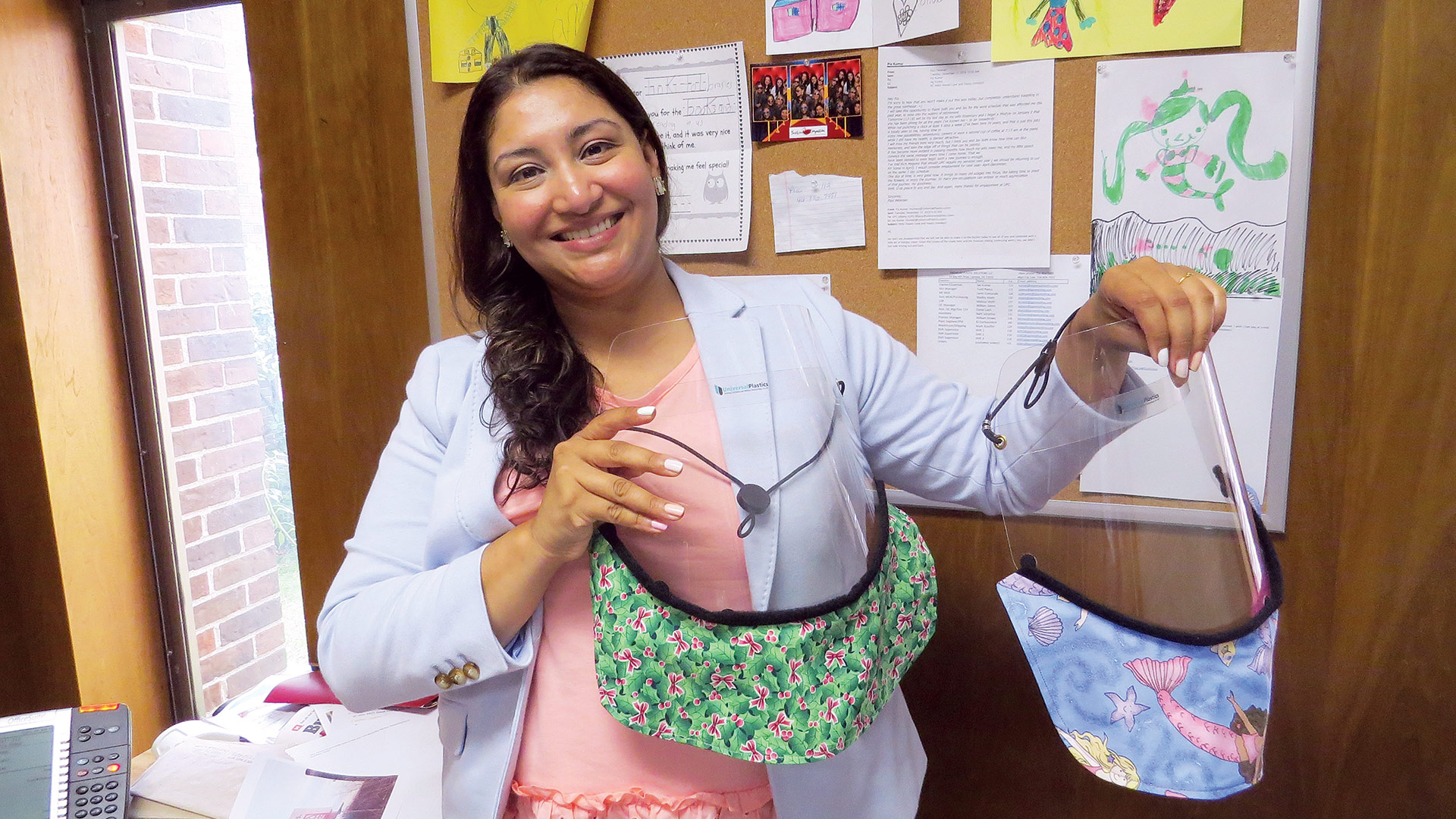
Pia Kumar shows off some of the company’s new face shields with ‘skirts,’ one of many new products it has developed in the wake of the pandemic.
As for her own efforts in the realm of work-life balance, she said, simply, “I work at it.”
By that, she meant that she finds time for work, family, and to be alone for a few moments each day, early in the morning — time she spends meditating and planning, for the most part.
“I need to get my planning done to feel prepared for my day,” she explained. “I do a 10-minute meditation, then I spend 30 minutes planning, and then I take my dog for a walk; it works for me.”
For this issue and its focus on women in business, we talked at length with Kumar about her work with her husband to grow and expand Universal. But mostly, the talk was about people and helping them handle all that work and life can throw at them — even a global pandemic.
Clear Intentions
As she talked with BusinessWest in the company’s recently opened corporate offices, located next door to the Holyoke plant on Whiting Farms Road, Kumar showed off a display of one of the latest additions to the company’s portfolio of products.
These are face shields — which the company started making a few months ago to help meet demand for personal protective equipment within the region — that feature what she called ‘skirts.’
Designed specifically for teachers, these customized products allow for open communication without muffling the voice or hiding expressions — things masks can’t do — while providing more protection than a common face shield.
“You can wear it all day — you’re fully covered, you’re fully sealed,” she said while demonstrating the product, noting there are several styles, including models invoking Halloween and Christmas, and another promoting breast-cancer awareness. Response has been good, she noted, and there are ongoing discussions about perhaps making such shields for children.
These PPE products are part of the company’s pivoting efforts during the pandemic, she explained — a way to assist the community and especially the healthcare and education sectors while also keeping employees working at a time when many traditional customers, including those in aerospace and medical-device manufacturing, have scaled back as a result of the pandemic.
And such efforts are among the current focal points for the Kumars, who acquired Universal Plastics roughly eight years ago — she dates the transaction to the birth of their first child — from long-time owner Joe Peters. Flashing back to that purchase, Pia said the couple, who met while they were both working in finance in New York after graduating from college, were looking for a challenge they could undertake together.
“We had always had this dream to someday own and run a small business together,” she said. “We just liked the idea of building something, we liked the idea of having autonomy, we liked the idea of taking something, growing it, and making it our life’s work.”
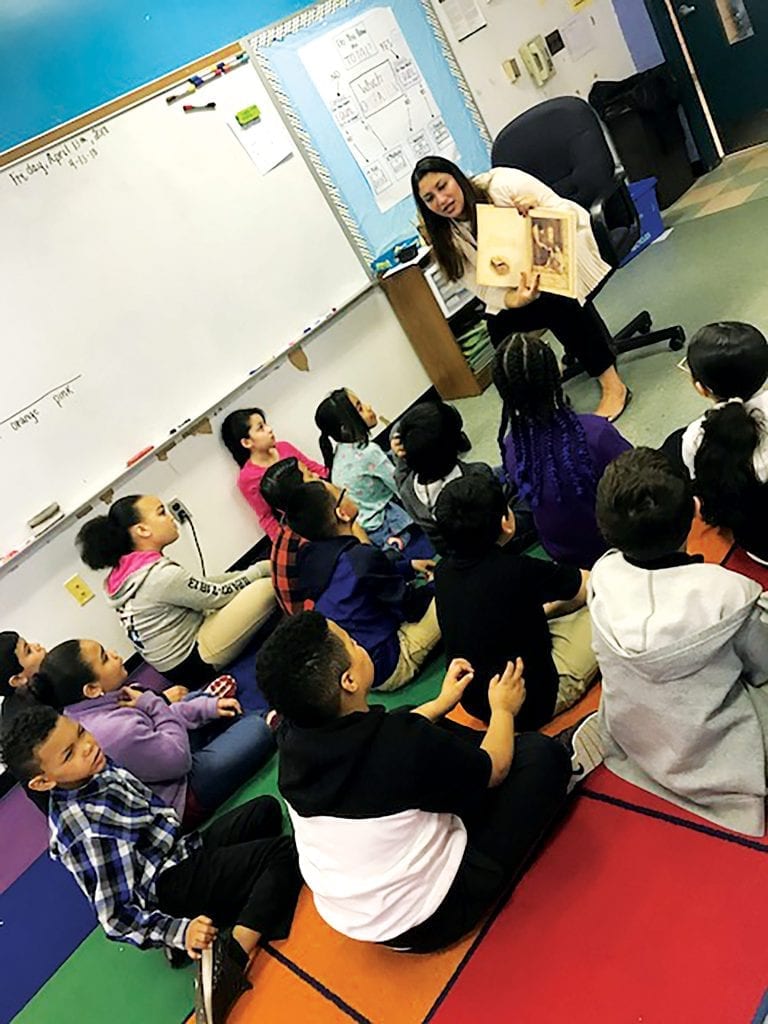
Pia Kumar, seen here reading to children at the Morgan School in Holyoke as part of the company’s Link to Libraries sponsorship, says her discussions with employees have helped her understand the many barriers that people face when it comes to succeeding in the workplace.
And that’s exactly what has happened with Universal, a company launched by Joe Peters’ father in Chicopee and eventually moved to Holyoke.
Indeed, the Kumars have added four other companies over the past several years, with the goal of attracting different types of customers and doing more for them. Expansion efforts started with the acquisition of a competitor, Mayfield Plastics in Sutton (since renamed Universal), an operation similar to the one in Holyoke.
“We offer a product called custom thermoforming,” she said of the Holyoke facility. “It’s good for small volumes, but as some customers ramped up, we would lose those customers. Then we started thinking about how we could keep that customer for a longer life cycle, and we started looking at injection molders.”
This led to the acquisition of Sajar Plastics in Middlefield, Ohio in 2018, and the subsequent addition of a blow-molding facility in Pennsylvania that had a strong focus on medical-equipment manufacturing — steps that have greatly diversified the corporation and opened the door to new types of opportunities.
While Pia is certainly involved with all aspects of the company, especially short- and long-term strategy, she told BusinessWest that people are her main focus, and it’s a role she believes she’s well-suited for.
“I try to spend a lot of time with employees; it’s part of what my focus is with the company,” she explained. “I like to really get out there and talk to people and really understand what our people are saying and thinking, and what their fears are.”
She traditionally did this through those aforementioned office hours — the in-person variety, especially in Holyoke, where she would walk the floor every day and talk with people. With the other plants, she would make a point of getting out to each at least once a month.
But COVID-19 changed all that, as it has many other aspects of this business — from the products being made, like those face shields with skirts and plastic dividers for automobiles (similar to those found in cabs), to the precautions being taken to keep employees safe.
Shaping Core Values
What hasn’t changed, especially during these trying times, is the company’s — and especially Pia’s — efforts to help employees overcome those barriers she mentioned.
And there are many of them, she went on, adding that a good percentage of the company’s employees are single mothers, who faced a number of hurdles before the pandemic and now face even more. She came to understand these hurdles over time, she said, and it was a real learning experience.
“Before we came here, we lived in New York City, we worked in finance, we worked in venture capital,” Kumar explained. “We were doing things with a group of people who had a lot of opportunities; they went to certain schools and had the right types of jobs and the right kind of résumés. Coming here and working in manufacturing gave me an understanding of the barriers that people face that I never had.
“I was in many ways taking for granted things like childcare and transportation and having access to affordable education,” she went on. “These are really, really good people who want to come in every day and do a really good job, but these are real barriers that they face. It’s not a question of how motivated they are or how ambitious they are — there are just structural barriers that people face that I became attuned to when I talked to my employees.”
“We had always had this dream to someday own and run a small business together. We just liked the idea of building something, we liked the idea of having autonomy, we liked the idea of taking something, growing it, and making it our life’s work.”
This understanding of the issues has translated into policies regarding attendance and other matters that Kumar considers worker-friendly.
Elaborating, she said the company has explored such things as ride-sharing and on-site day care and have encountered significant barriers to success. What has worked, she noted, is talking with people to understand their specific situations, and then making accommodations when and where they are practical.
“Our single mothers are some of our best workers,” she told BusinessWest. “And understanding that and working with that population to make sure that they have the tools they need to be set up for success became personally important to me.”
It was through her work with employees to understand and then help remove barriers that led to her involvement with a number of area nonprofits and institutions.
That list includes Link to Libraries, the nonprofit that fills school library shelves and encourages reading by placing area community leaders in the classroom to read — Universal Plastics sponsors the Morgan School in Holyoke, which many of the company’s employees attended — as well as the Women’s Fund of Western Massachusetts, Bay Path University, and Springfield Technical Community College, which she serves as a foundation board member.
She’s become so enamored with STCC manufacturing graduates that she has a standing rule with her operations manager: “if someone comes to us from STCC, you have to give me a reason not to hire them, because they’re all people who have pulled themselves up by their bootstraps, and they just need an opportunity. And that’s the kind of company we are; that’s the kind of company we need to be. We need to be the kind of company that gives people a chance, and we need to do it over and over again.”
As for her own professional development, Kumar said she doesn’t have a coach, per se, although her husband might count as one. But she does read quite a bit on the subject.
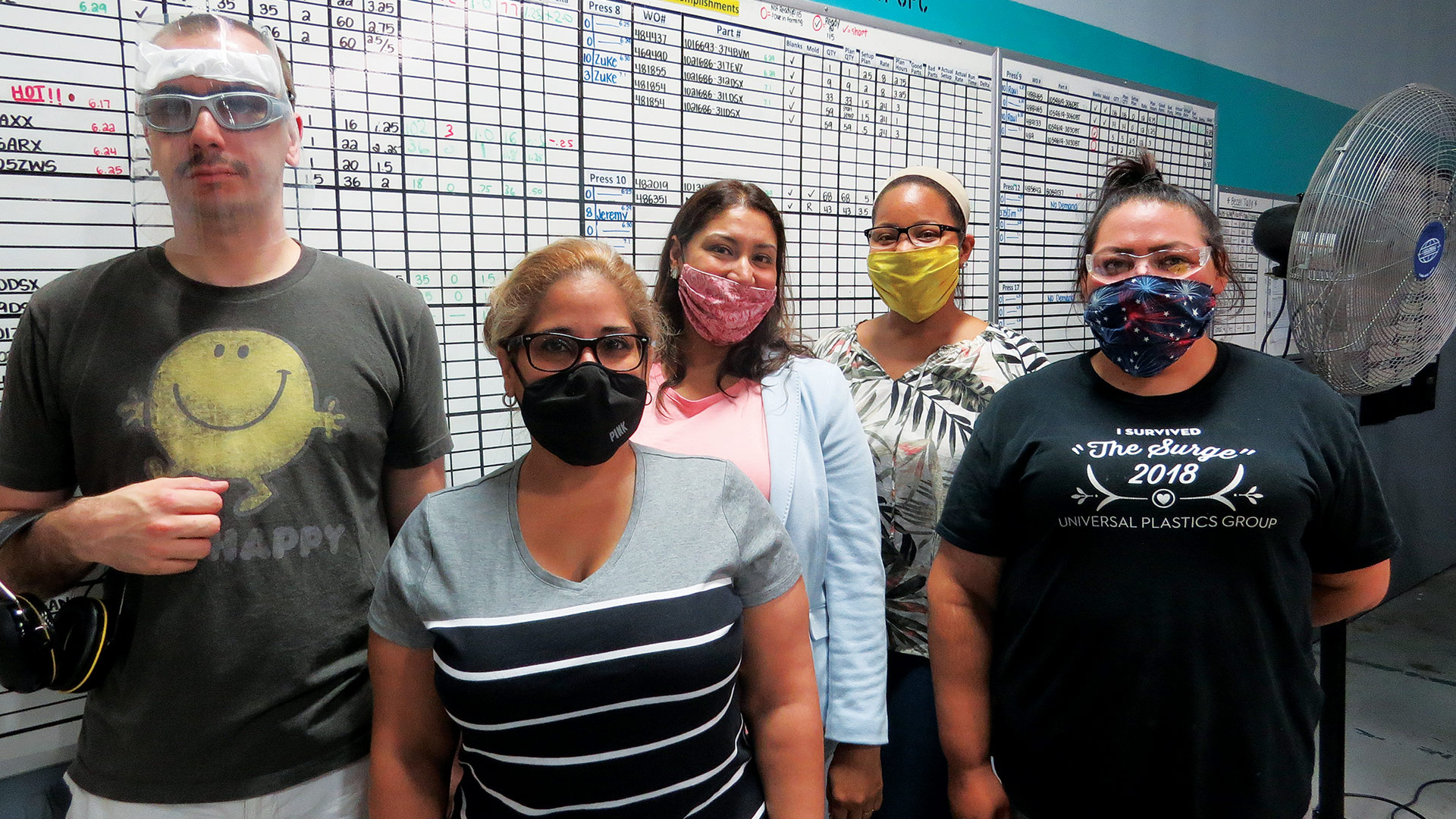
Pia Kumar, seen here with coworkers at the company’s Holyoke plant, says that, while she’s focused on all aspects of the business, connecting with employees and helping them address challenges has become her primary focus.
What she does have are mentors. She listed Susan Jaye Kaplan, founder of Link to Libraries, and Dianne Fuller Doherty, retired business owner and director of the Massachusetts Small Business Development Center’s Springfield office — both winners of BusinessWest’s Difference Makers award.
“I’m not afraid to ask for help; I’m not afraid to admit I don’t know something,” she said, adding that she believes good managers share these traits. “Feedback is a gift, and I firmly believe, if you don’t want to know the answer, then don’t ask the question. But if you ask the question, you need to be able to stomach the answer.”
When asked about how she approaches the broad assignment of achieving work-life balance, she said simply, “I work at it.”
“These are really, really good people who want to come in every day and do a really good job, but these are real barriers that they face. It’s not a question of how motivated they are or how ambitious they are — there are just structural barriers that people face that I became attuned to when I talked to my employees.”
“I spend a lot of time planning, I delegate a lot, and I am very comfortable with having a list of things I wanted to get to but didn’t at the end of the day,” she explained. “There are days when the company is the most important thing — when COVID first happened, we needed to make our employees safe. And then, there are other times when it’s more important that we’re there for our children. My mother is having surgery next week, so that will be the focus then.
“I feel very lucky that I have a supportive partner who helps me manage all these things,” she went on. “But we also have a really great team. We’re not the experts — we didn’t come in with a deep background in manufacturing, and that’s why we keep people from our acquired businesses. Our job is to take all the information and provide the right vision.”
Parts of the Whole
Summing up her approach to her broad role at Universal Plastics, Kumar said, “my biggest failure as a leader is when someone can’t tell me what they really think; if they can’t tell me what they really think, we have a problem.
“I encourage people debating and saying ‘no, this is how we should be doing it,’” she went on. “And when there is that open communication, there’s trust, and that allows me to do more, and the more we can grow as a business.”
Open communication. Trust. Helping employees overcome barriers. These are the keys to success at this company — and any company, said Kumar, stressing, again, that four-word phrase she used in connection with all these matters: ‘we work at it.’
George O’Brien can be reached at [email protected]



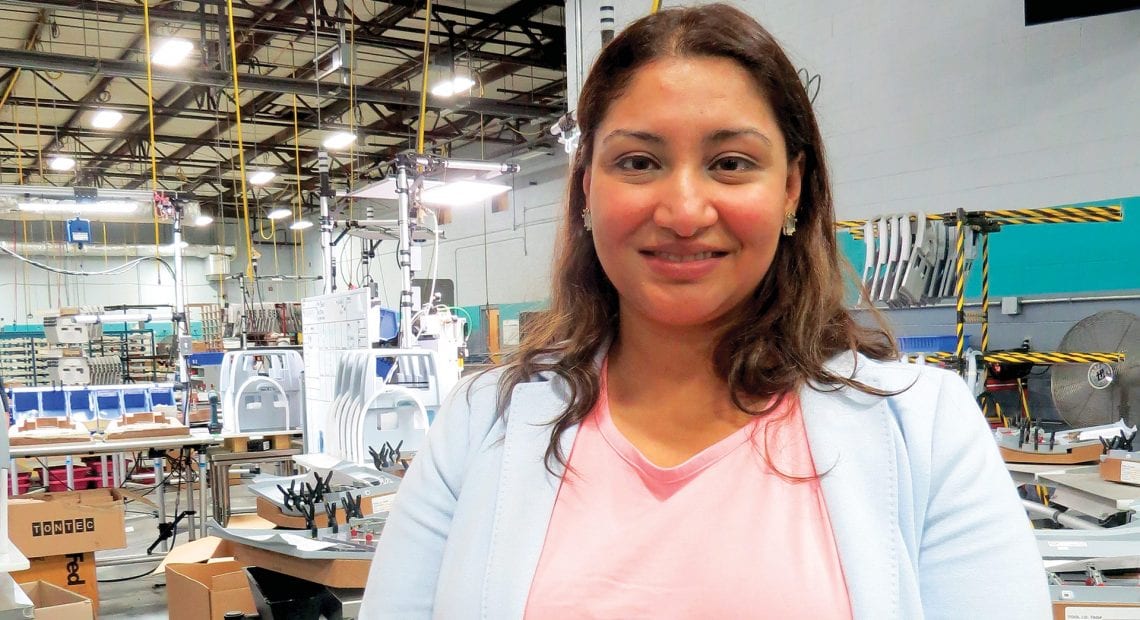
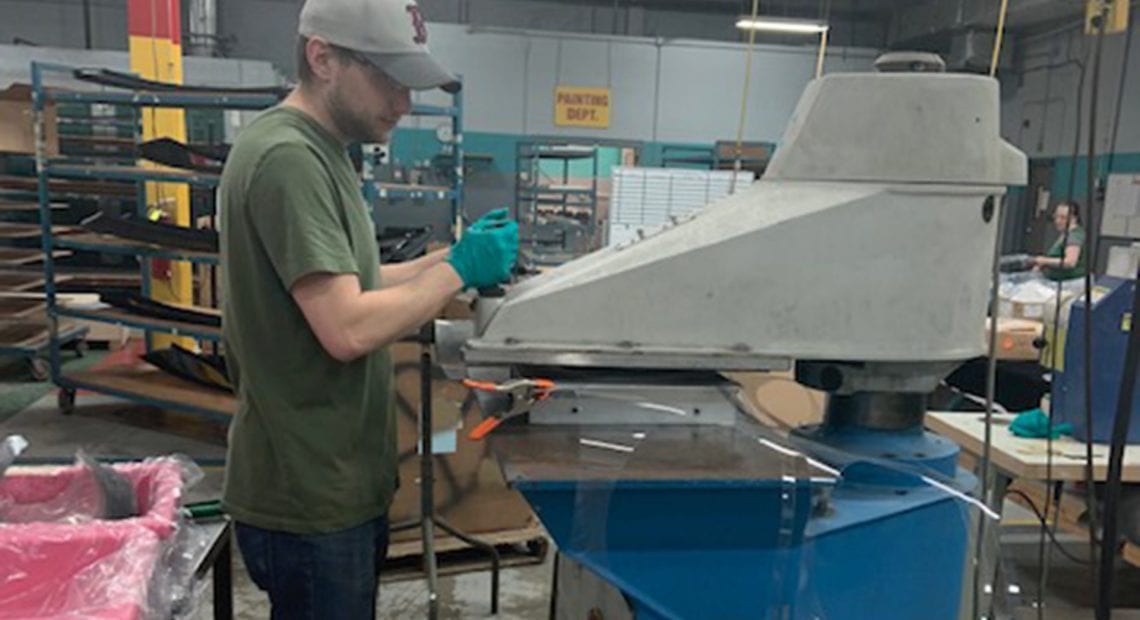
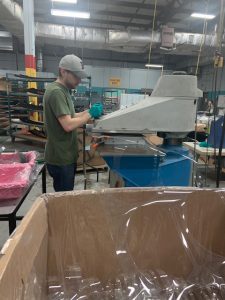
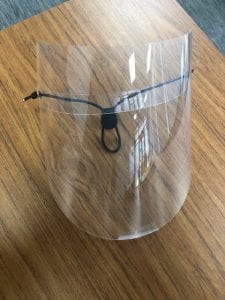 Indeed, in addition to the intubation boxes, the company is also producing face shields that can be used by those in healthcare industry and other sectors as well. Even individuals with compromised immune systems can use them at a time when everyone is trying to reduce their exposure to the dangerous virus.
Indeed, in addition to the intubation boxes, the company is also producing face shields that can be used by those in healthcare industry and other sectors as well. Even individuals with compromised immune systems can use them at a time when everyone is trying to reduce their exposure to the dangerous virus.
